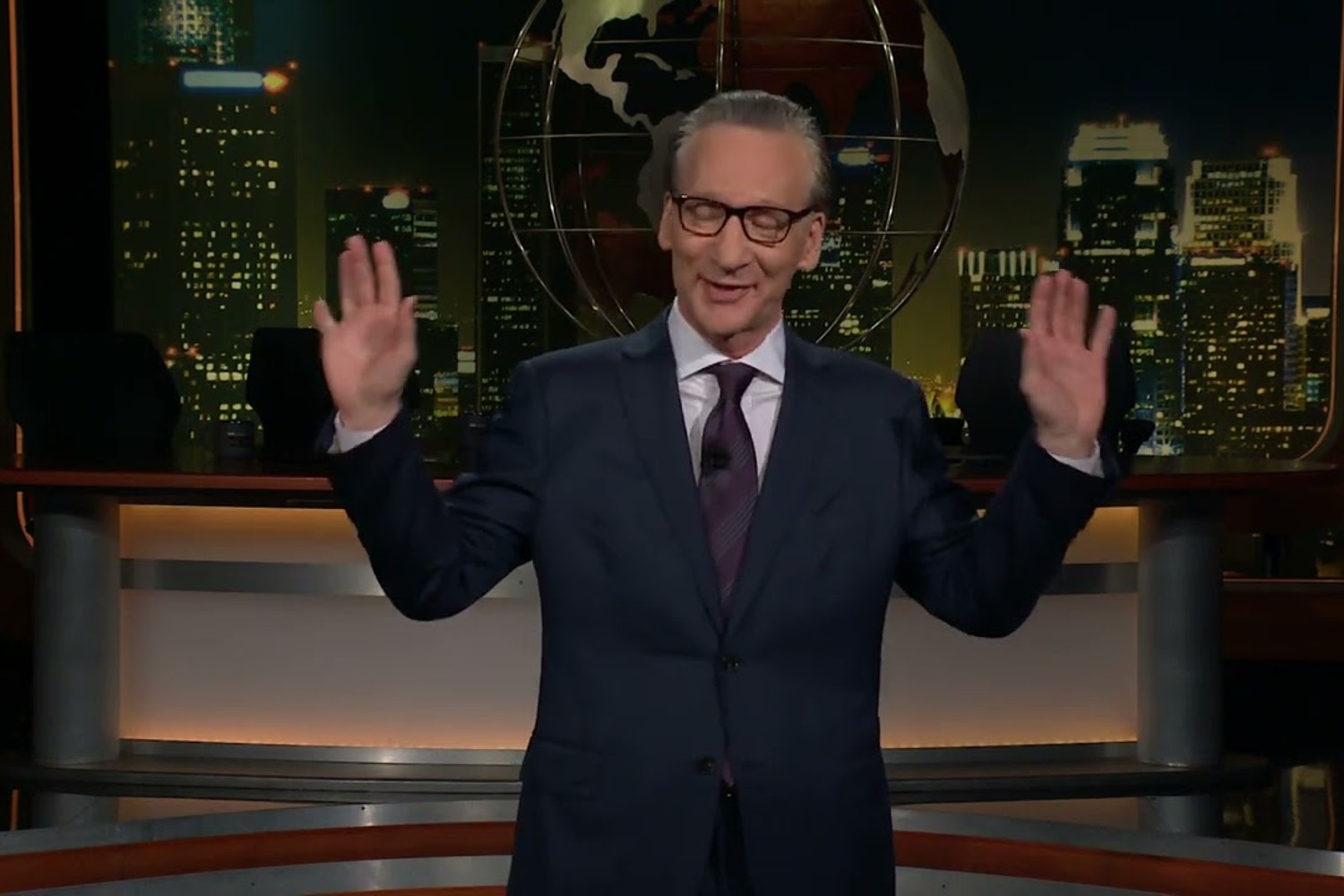As Bill Maher announced to the Real Time studio audience, the Grammy Awards are this weekend — and that made for an episode that was more musical than most. That was especially noticeable during the interview that led off the episode, in which Maher was joined by Mike Render — or, as he’s better known, Killer Mike.
Render invoked both James Baldwin and Dick Gregory within a minute of sitting down. The mention of Baldwin wasn’t the only time Render got literary; later in the conversation, he recommended Charles Blow’s The Devil You Know: A Black Power Manifesto. He and Maher have a long history, which also prompted Render to bring up the time Maher used a racial slur on the show years earlier.
It got to the point where the host had to push back somewhat. “Can I ask a question?” Maher asked. Render wasn’t quite done, though; he then removed his jacket and thanked the makers of the shirt he was wearing for “making cool fat people clothing.”
Maher had nothing but praise for Render’s Grammy-nominated album MICHAEL, which he said found the space “between Killer Mike and Mike Render — the Mike I know.” And in the first part of their conversation, Render told his life story, of coming of age in Atlanta, making some mistakes along the way and having a lifelong love of hip-hop. “He was very stubborn about his dream,” Render said.
That conversation took a very candid turn when both men shared their memories of selling drugs when they were much younger, and the things that each of them did at the time that they now regret. That led to a broader conversation about Atlanta, in which Maher mentioned having visited a strip club with Render and Render’s wife. “It’s a social environment,” Render said.
“I thought it was the naked women, but you’re right,” Maher said. “It’s the social part!”
Render pointedly didn’t endorse any of the major party candidates for president, though he did speak about the importance of looking at politicians’ platforms over their personalities. It was a wide-ranging conversation; it also had unique energy to it throughout.
Bill Maher, Killer Mike and Robert Costa Deconstruct Politics on a New “Real Time”
Plus: an unsettling prediction of the near futureOther notable moments from the episode:
- Continuing in the theme of reality outpacing satire, the most effective part of Maher’s opening monologue involved him simply recounting the conspiracy theory about the Travis Kelce/Taylor Swift relationship being a psyop. “Abort! They’re on to us!” Maher said.
- Somewhere out there on social media, of course, someone is watching footage of Maher saying this and posting, “See? He admitted it!”
- Jessica Tarlov and New Hampshire Governor Chris Sununu joined Maher for the panel. Not surprisingly, the presidential election and the issues that could decide it were discussed.
- In perhaps the most dramatic example of a politician flattering Maher’s audience, Sununu suggested that the members of the studio audience would do a better job governing than the current Senate. Maher was unconvinced.
- Maher on the realities of the executive branch: “Presidents basically are given crappy situations and they deal with it.”
- New Rules found Maher criticizing an increase in materialism in pop music. This included proposing a new Grammy category: “Best Song Where No One Brags About Buying a Lot of Shit.”
- Maher went on to argue that this was a lyrical concern that transcended genres; he also sung a bit of Loggins and Messina’s “Danny’s Song” and gave a dramatic reading of part of Kanye West’s “Mercy.”
- Pop songs were once far more sexist and homophobic than they are now, Maher observed. Which led to him posing the question: could a similar sea change be in the works today?
This article appeared in an InsideHook newsletter. Sign up for free to get more on travel, wellness, style, drinking, and culture.
